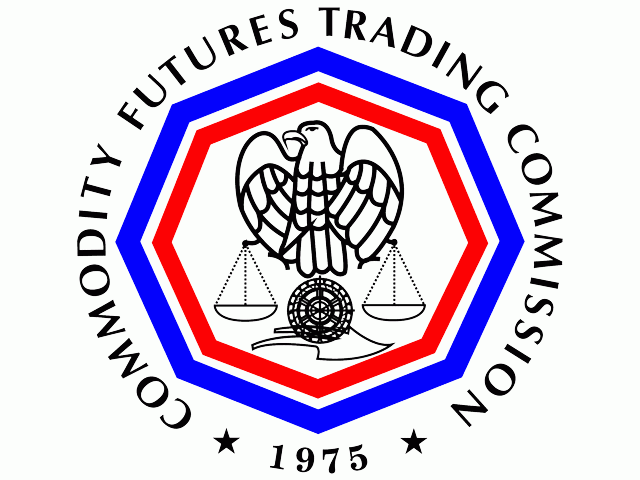CHS Fined $6.5M in Easterday Fraud Case
CFTC Penalizes CHS Hedging for Not Taking Steps to Prevent Ghost-Cattle Scam
LINCOLN, Neb. (DTN) -- CHS Hedging LLC has been ordered to pay a $6.5 million penalty after the Commodity Futures Trading Commission charged the company in connection with a so-called ghost-cattle scam perpetrated by former Washington state rancher Cody Allen Easterday.
The CFTC cited CHS Hedging for anti-money laundering, risk management, record-keeping and supervision violations as a result of failing to implement an adequate anti-money laundering program for a futures and options trading contract controlled by one of its customers.
Easterday currently is serving an 11-year prison sentence after pleading guilty to federal criminal charges of wire fraud in connection with a $244 million scheme to charge Tyson Fresh Meats for cattle that didn't exist.
From January 2017 through December 2020, the CHS customer Easterday "engaged in speculative trading that sustained millions of dollars in losses in the ranching company's account at CHS Hedging," according to an order from CFTC. The CFTC filed and settled charges against CHS this week.
Easterday used his ranch to misappropriate $230 million from Tyson Fresh Meats, the CFTC charged. Easterday then used the funds to meet margin calls he made based on speculative trading in his account with CHS. Easterday made margin payments of more than $147 million to CHS Hedging during the four-year period, according to the CFTC.
Easterday was facing margin losses for speculative trading on live and feeder cattle futures and options contracts traded on the CME.
CHS Hedging accepted the margin payments "without adequately investigating the source" of Easterday's funds or without reporting his funds or transactions to the U.S. Department of the Treasury, according to CFTC.
"The order finds that Customer A's (Easterday) trading losses were facilitated by CHS Hedging's failure to impose and enforce appropriate trading limits on his account," CFTC said in a news release.
P[L1] D[0x0] M[300x250] OOP[F] ADUNIT[] T[]
The CFTC also found the trading limits CHS Hedging imposed on Easterday's account were "inconsistent" with his financial resources and hedging needs.
"Customer A frequently exceeded his trading limits," CFTC said. "CHS Hedging, at times, raised those limits, which allowed Customer A to continue his speculative trading and sustain more losses.
"Moreover, the order finds that CHS Hedging failed to maintain certain required records for pre-trade communications and failed to produce certain required records promptly or in the form requested by CFTC staff."
Tom Ryan, senior director of corporate communications at CHS, said in a statement to DTN the company is ready to move on from the case.
"CHS is committed to conducting business with the highest level of integrity," Ryan said in a statement.
"We are glad to resolve this issue and remain committed to improving our compliance and risk-management practices within our CHS hedging operations."
CFTC Commissioner Christy Goldsmith Romero said in a statement that while CFTC action was necessary in the CHS case, that she did not support the action taken because it did not "send a strong enough deterrent" to other companies.
"Unfortunately, this is not the first time that CHS has failed to follow laws and rules to uphold it regulatory responsibility," Goldsmith Romero said.
"CHS is a recidivist. There have been 22 enforcement actions by exchanges and the CFTC brought against CHS. Many of these involved failures related to record-keeping and reporting, including position reporting. In 2016, the commission brought a $1 million enforcement action against CHS for 13 years of misreporting fixed cash positions, which are related to position limits."
Beginning in 2016 and continuing through November 2020, Easterday submitted false and fraudulent invoices and other information to Tyson and another company.
The Easterday Ranches, Inc., owner received reimbursement from the companies for the purported purchase and growing cattle the company never actually bought.
In 2021, the CFTC charged Easterday for fraud, making false statements to an exchange and for violating exchange-set positions limits.
Easterday also was charged with defrauding the Chicago Mercantile Exchange in 2017 and 2018 to avoid disciplinary actions after exceeding position limits on cattle markets and for violating position limits.
The CFTC charges against Easterday are pending in court.
Read more on DTN:
"Easterday Sentenced to 11 Years in Prison," https://www.dtnpf.com/…
Todd Neeley can be reached at todd.neeley@dtn.com
Follow him on Twitter @DTNeeley
(c) Copyright 2022 DTN, LLC. All rights reserved.






